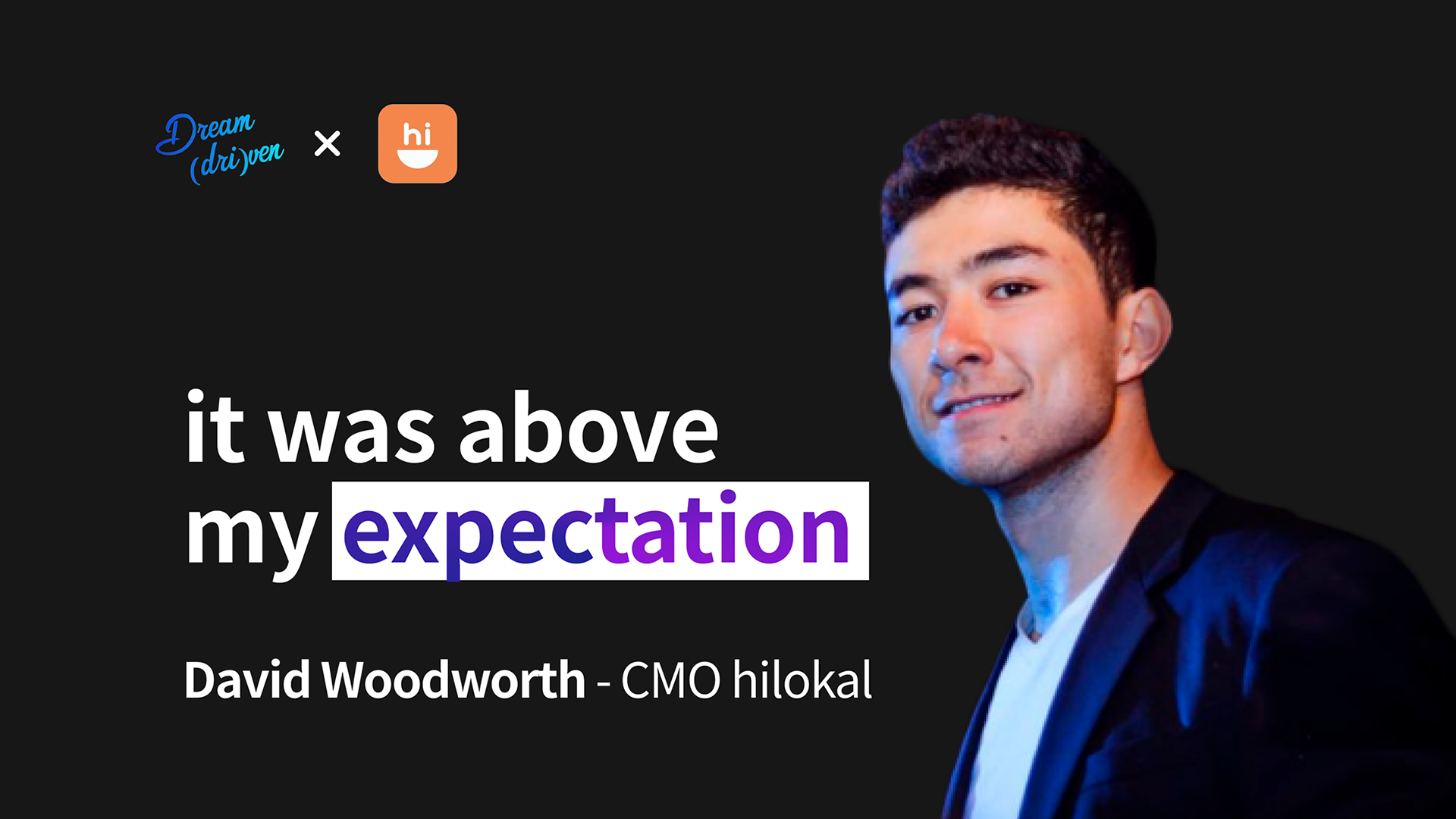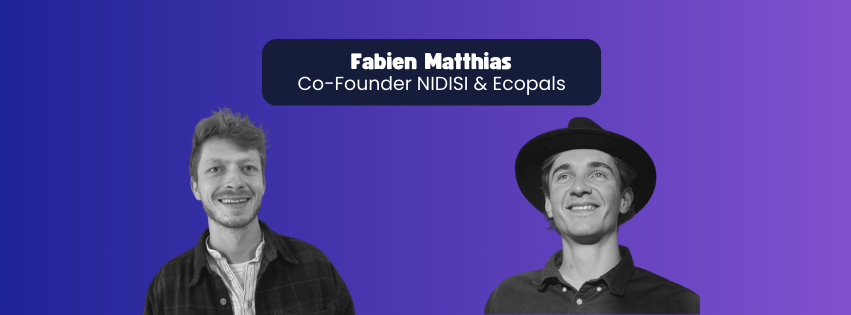David Woodworth, founder of HiLocal, a language learning and community app, has had a transformative journey from running language exchange events in cafes to scaling a tech-based platform with over a million downloads. His venture’s success didn’t come without challenges, particularly when it came to scaling the product and navigating the complexities of paid advertising. This is where his collaboration with DreamDriven helped guide him through some of the most crucial steps of his startup’s growth.
From Offline Events to Tech-Based Solutions
David’s journey began in Seoul, where he and his business partner started organizing language exchange events for expats and international residents. What started as a casual meet-up grew into a thriving community, eventually leading them to open multiple cafes and host large-scale events. As the business continued to expand, they started to see the potential to scale it further through technology.
Realizing that the community they built could be better served online, David and his team pivoted to create HiLocal, an app that connects people for language learning in a more structured, scalable way. The app built upon the offline success by implementing a matching algorithm that was previously used in their cafe events. This technology ensured users were paired with the right language partners, making each interaction more productive and engaging.
The Paid Advertising Challenge: Scaling with Data
One of the biggest challenges David faced was transitioning from a physical, event-driven business model to an app that needed to scale quickly. Initially, the team had a small but loyal user base. However, to validate the startup business model and expand rapidly, David recognized that they would need to make the product more visible to a larger audience.
This is where DreamDriven came into play. While DreamDriven didn’t work with David through their typical accelerator model, they helped him refine his go-to-market strategy and paid advertising approach. The team at DreamDriven provided valuable insights into ad campaign optimization and how to create a sustainable user acquisition strategy for an app like HiLocal. David quickly learned that advertising wasn’t just about running campaigns but about learning from the data to understand what resonates with users.
Through paid advertising on platforms like Meta, Google, and TikTok, David and his team could drive traffic to their app. However, as he explained, it was a crucial learning experience. At first, they tried to optimize for simple metrics like clicks and downloads, but they soon realized that the most valuable metric was engagement—the time users spent on the app and their interaction levels.
Testing, Iterating, and Learning
One of the most impactful decisions was using ads not just for growth but as a testing tool to gather real-time feedback about their product. DreamDriven helped David set up a testing roadmap to track user behavior, which ultimately allowed him to make informed decisions about product tweaks and user experience improvements.
As David shared, user feedback was essential to understanding where they were going wrong and what needed improvement. The team optimized their ad campaigns based on the feedback received from these initial tests. This allowed them to attract a more engaged user base—those genuinely interested in language learning rather than just a casual user who would quickly churn.
David also pointed out that using ads for product testing, especially in the early stages, helps refine the product-market fit before scaling up. It’s a more sustainable strategy than relying on paid traffic without understanding whether the product truly solves a problem for its users. The feedback-driven approach helped HiLocal identify its key differentiators, including the matching algorithm and the social, community-driven aspect of the app.
The Road Ahead: Monetization and Scaling
Now, HiLocal is entering the next phase of its journey: monetization. David is focused on building a sustainable business model that can support both the app’s ongoing growth and the expansion of their team. He explained that finding ways to monetize the app without alienating users is one of their biggest challenges. As with many B2C startups, transitioning from a free product to one with a paywall is never straightforward.
David’s experience highlights the importance of early-stage investment and building a team that can support growth in critical areas such as marketing, user acquisition, and product development. For David, funding is no longer just about survival—it’s about securing the future of HiLocal by focusing on its sustainable growth. With monetization now on the horizon, the next challenge is ensuring that HiLocal remains an integral part of users‘ daily routines.
Why HiLocal’s Journey is Inspiring for Early-Stage Entrepreneurs
David’s journey with HiLocal provides several valuable lessons for early-stage founders—particularly those in B2C startups or social startups focused on community building. Here are some key takeaways:
- Start with your strengths: Whether you’re creating a digital product or a physical business, leverage your core competencies and build on them. David’s experience with offline events laid a strong foundation for his digital pivot.
- Test before scaling: Use paid ads as a tool to gather insights into your users‘ needs and behaviors. Testing early allows you to make informed decisions and avoid spending resources on unproductive growth strategies.
- Engage your core users: Creating a community-driven platform is critical, especially in the early stages. Focus on building a core user base that finds real value in what you’re offering.
- Keep iterating: Building a tech startup isn’t just about launching the product—it’s about continuous improvement. Whether it’s the app’s functionality or the user interface, always be open to feedback and iteration.
- Monetize thoughtfully: Transitioning to monetization is a crucial phase for impact startups. Focus on sustainable revenue models that provide real value to users without compromising their experience.
David’s story is a perfect example of how venture building and startup mentorship can guide entrepreneurs through critical stages of their journey. It’s about scaling strategically, finding the right co-founders, and navigating challenges with the right mindset.
If you’re building a tech startup and want to validate your startup idea, DreamDriven’s approach to early-stage venture building and product-market fit offers invaluable resources for the next phase of your entrepreneurial journey.
Key Takeaways:
- Use paid advertising as a tool for testing and refining your product, not just for growth.
- Focus on building a core user base and continuously gather feedback to improve your app.
- Monetization is crucial, but it should align with creating a sustainable business model that serves your users‘ needs.
- DreamDriven can support early-stage founders with venture building and startup mentorship, helping you get to the next level.



